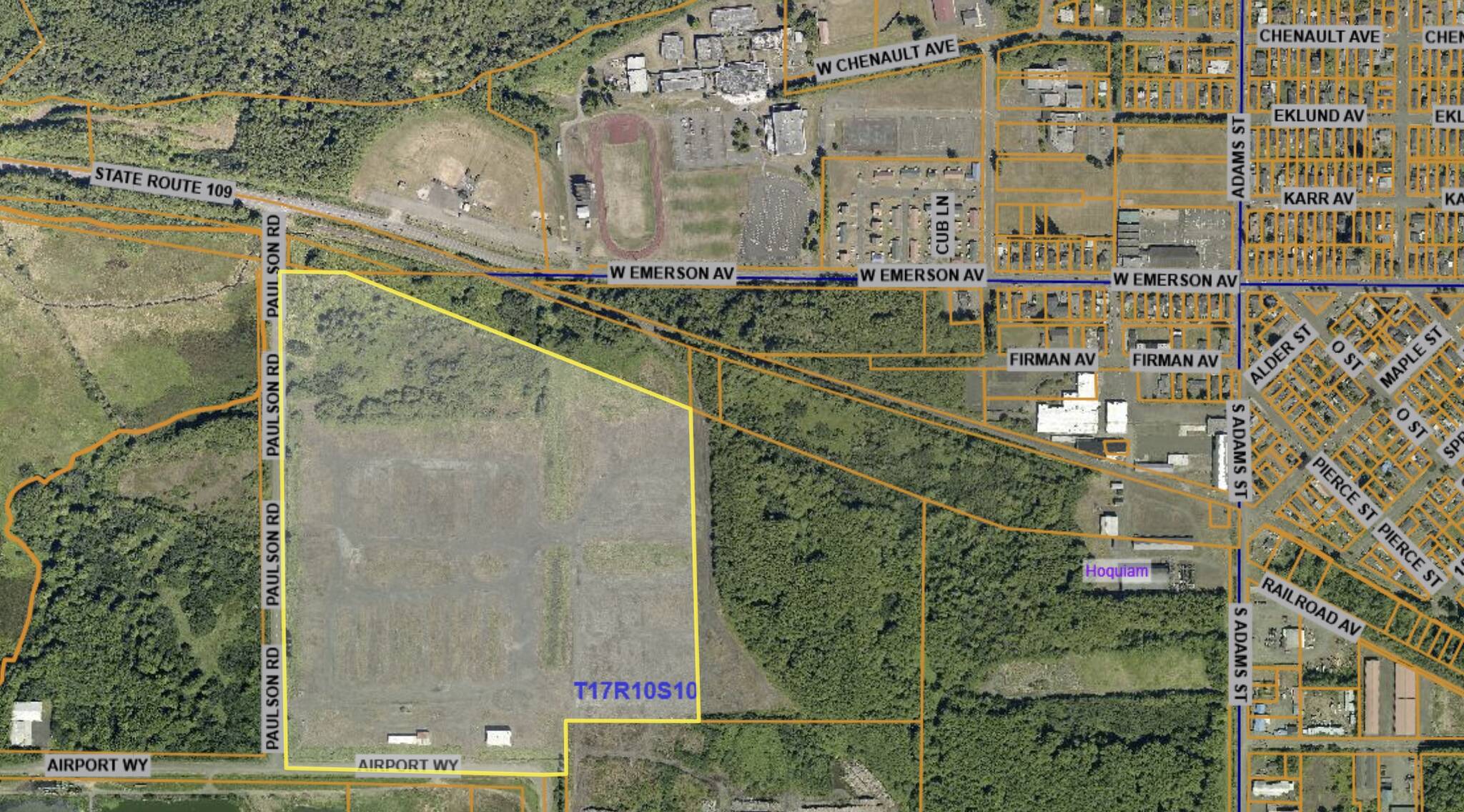A proposal to build a wood pellet manufacturing facility in Hoquiam has received approval from regional air quality officials to move forward with construction.
In a notice sent out on Tuesday, the Olympic Region Clean Air Agency (ORCAA) issued its final determination on a 2023 air quality permit from Pacific Northwest Renewable Energy to build a plant that would turn woody biomass into pellets for fuel.
The decision to approve, dated May 7, concludes that the proposal meets all air quality criteria required by Washington state, including compliance with local, state and federal standards and use of pollution control technologies.
In Tuesday’s notice, the air agency also formally responded to about 30 public comments that raised concerns with details of the permit application, impacts to the local environment and the budding wood pellet industry in the Pacific Northwest.
With the decision, Pacific Northwest Renewable Energy (PNWRE) has the go-ahead to construct pellet mills, storage silos and a conveyor on a 60-acre parcel located east of Bowerman Airport, property leased through the Port of Grays Harbor. The plant will produce about 450,000 tons of wood pellets per year and export them overseas.
The facility’s significant potential to produce emissions, both from the burning of wood for heat and pellet production, required an air quality application in July 2023, followed by a public hearing in Hoquiam in January and comment period that inundated the air agency with considerations.
According to ORCAA spokesperson Dan Nelson, that process produced a handful of minor changes to the conditions of the agency’s permit approval.
The final permit was revised to set a threshold on emissions from a pair of wet hammer mills used to crush wood material — pollution previously uncontrolled in the old application. Revisions also shortened the timeline to submit performance test results and tinkered with other aspects of the application.
In other areas of the application, ORCAA refuted claims from critics that the proposal had fallen short or was underregulated. PNWRE vastly underestimated emissions projections of the pellet plant, calling the company’s estimates “acceptable for this proposed facility.”
In January, the Southern Environmental Law Center told ORCAA that the permit application had “vastly underestimated” overall emissions. The law center said the estimated of 1.3 tons of Hazardous Air Pollutants per year was only a fraction of the chemicals released by similar plants in the American Southeast, where it had watchdogged the growth of the biomass industry and tracked it to the Pacific Northwest.
But the air agency found that after reviewing PNWRE’s emission’s calculations, the estimates were “acceptable for this proposed facility.” In addition, the agency stated, comparing pellet facilities in opposite corners of the country is not a “perfectly equivalent comparison,” because Southern pine species burn dirtier than hemlock or Douglas fir of the Northwest.
“This fact played a part in ORCAA’s decision to accept — and hold PNWRE fully accountable to — the lower emissions estimates provided in their (initial) application,” the agency said in its response, adding that if testing shows the company did underestimate emissions, it could be subject to fines or permit amendments.
PNWRE has stated that it will source its plant with ground material leftover from logging and extra sawdust and chips from mills, a needed local market, according to forest products advocates. Environmental advocates are wary the pellet plant influx will lead to increased clearcuts in Washington.
Beyond concerns about the larger industry, locals said in January they were worried about the plant’s location — within a mile proximity to Hoquiam schools and the Grays Harbor National Wildlife Refuge. But environmental concerns other than air quality, like impacts to soil, water and wildlife, fall outside of ORCAA’s authority, the final determination states.
The public has 30 days to appeal ORCAA’s decision to the Washington State Pollution Control Board.
The city of Hoquiam led environmental review for the project by conducting the State Environmental Protection Act process, issuing a determination of non-significance and foregoing an environmental impact statement in 2023.
PNWRE’s Hoquiam facility is the second pellet plant to receive approval in Southwest Washington, behind one slated for Longview. The Hoquiam plant is the first project in the region for Pacific Northwest Renewable Energy, which is based in Massachusetts. Leadership of the new company has about 50 years of combined experience in the biomass energy industry, according to executives.
Contact reporter Clayton Franke at 406-552-3917 or clayton.franke@thedailyworld.com.


